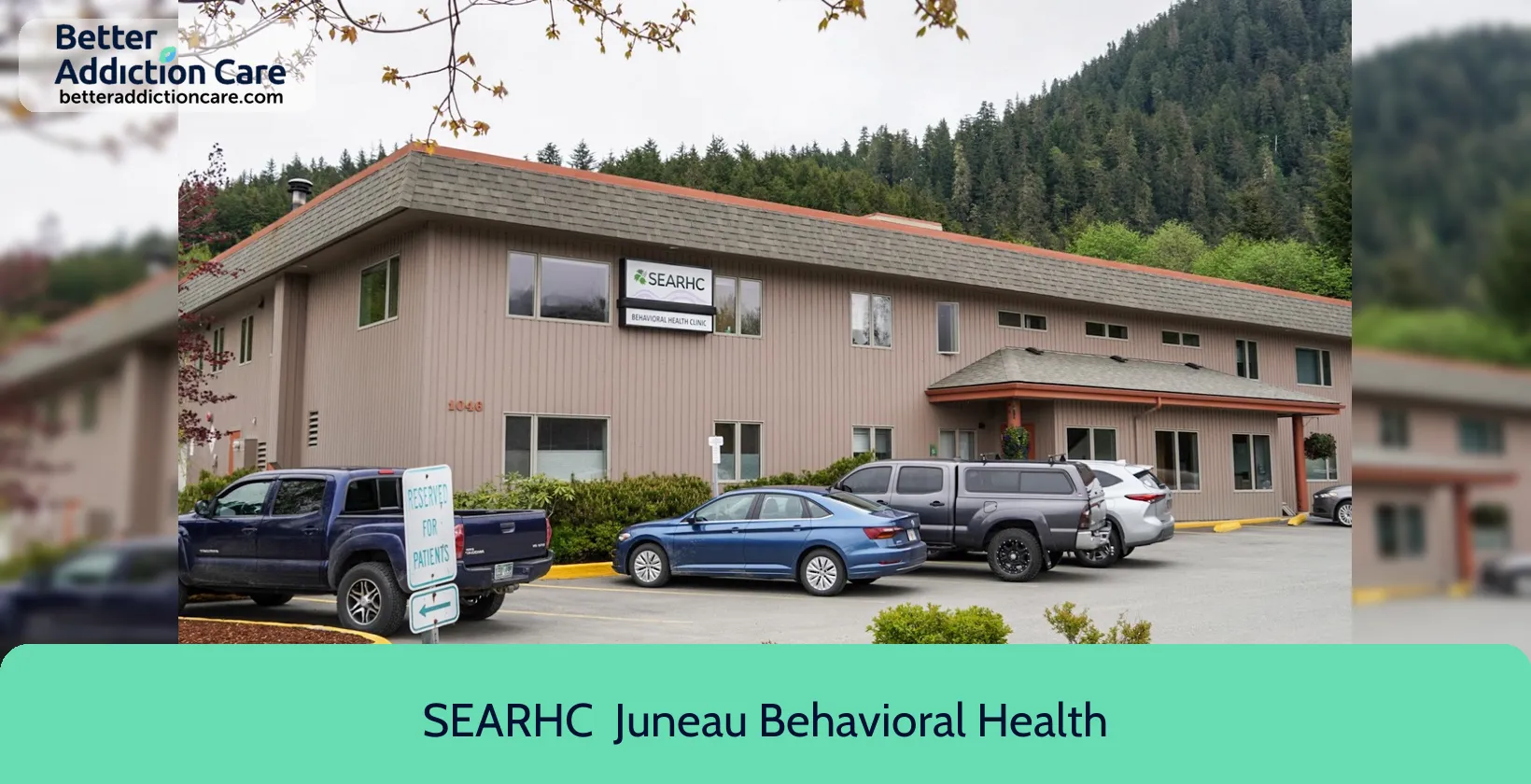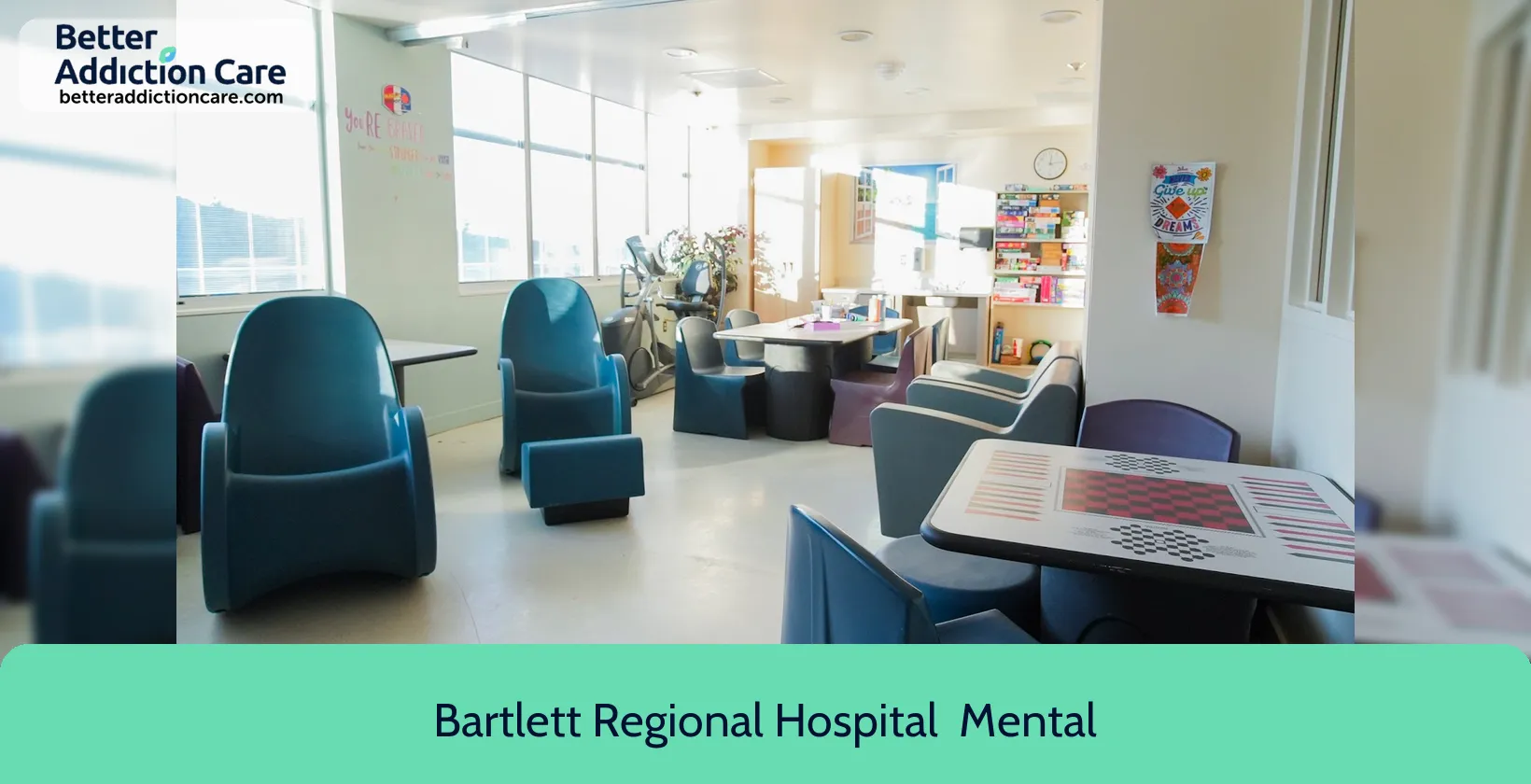Rainforest Recovery Center - Bartlett Regional Hospital

Overview
Rainforest Recovery Center, situated in Juneau, Alaska, provides high-intensity substance misuse treatment to individuals who are grappling with addiction. The facility is committed to providing inpatient rehabilitation services that are in high demand for the residents of Juneau and the adjacent Southeast Alaska region. Patients are able to access comprehensive care in their communities without the need to travel to larger locations, which enhances the availability of recuperation support for the local population.
Although the center does not specify gender-specific or faith-based programs, it prioritizes inclusive care for all individuals who require assistance. Although specific treatment modalities were not offered, comparable facilities typically provide evidence-based approaches, including cognitive behavioral therapy, group therapy, and personalized treatment plans. The Rainforest Recovery Center is distinguished by its accessibility and critical position in providing substance misuse treatment to the Southeast Alaska community. This ensures that individuals can access the care they require without the additional burden of long-distance travel.
Rainforest Recovery Center - Bartlett Regional Hospital at a Glance
Payment Options
- Cash or self-payment
- Medicaid
- State-financed health insurance plan other than Medicaid
- Private health insurance
- Federal military insurance (e.g., TRICARE)
Assessments
- Screening for tobacco use
- Comprehensive mental health assessment
- Comprehensive substance use assessment
- Interim services for clients
- Outreach to persons in the community
Age Groups
- Young adults
- Adults
- Seniors
Ancillary Services
- Case management service
- Integrated primary care services
- Suicide prevention services
- Mental health services
- Social skills development
Highlights About Rainforest Recovery Center - Bartlett Regional Hospital
7.45/10
With an overall rating of 7.45/10, this facility has following balanced range of services. Alcohol Rehabilitation: 8.00/10, Drug Rehab and Detox: 8.46/10, Insurance and Payments: 6.00/10, Treatment Options: 7.33/10.-
Drug Rehab and Detox 8.46
-
Alcohol Rehabilitation 8.00
-
Treatment Options 7.33
-
Insurance and Payments 6.00
Accreditations
State mental health department:
State mental health department accreditation refers to the process of evaluating and certifying the quality and standards of a state's mental health department, ensuring that it provides high-quality services and meets specific criteria for mental health care. The accreditation process is performed by a third-party organization and helps to improve the overall care and treatment of individuals with mental health conditions.
Hospital licensing authority:
The Hospital Licensing Authority is responsible for granting licenses to healthcare facilities, ensuring that they meet the standards and regulations set by the government. Accreditation is a process of evaluation and recognition by a third-party organization, confirming that the hospital meets specific quality and safety standards.
The Joint Commission:

The Joint Commission accreditation signifies that a facility has met rigorous standards of excellence in patient care, treatment, and safety. It assures individuals and healthcare professionals that the accredited facility provides high-quality, evidence-based care for addiction and mental health issues, fostering trust and confidence in their services.
Treatment At Rainforest Recovery Center - Bartlett Regional Hospital
Treatment Conditions
- Mental health treatment
- Alcoholism
- Substance use treatment
- Co-occurring Disorders
Care Levels
- Hospital inpatient/24-hour hospital inpatient
- Outpatient
- Short-term residential
- Residential detoxification
- Outpatient detoxification
Treatment Modalities
- Cognitive behavioral therapy
- Telemedicine/telehealth therapy
- Substance use disorder counseling
- Trauma-related counseling
- Smoking/vaping/tobacco cessation counseling
Ancillary Services
Languages
- Sign language services for the deaf and hard of hearing
- English
Additional Services
- Pharmacotherapies administered during treatment
- Housing services
- Breathalyzer or blood alcohol testing
Special Programs
- Clients with co-occurring mental and substance use disorders
- Clients who have experienced trauma
Get Help Now
Common Questions About Rainforest Recovery Center - Bartlett Regional Hospital
Contact Information
Other Facilities in Juneau

6.89

7.38

6.74
DISCLAIMER: The facility name, logo and brand are the property and registered trademarks of Bartlett Regional Hospital - Mental Health Unit, and are being used for identification and informational purposes only. Use of these names, logos and brands shall not imply endorsement. BetterAddictionCare.com is not affiliated with or sponsored by Bartlett Regional Hospital - Mental Health Unit.
